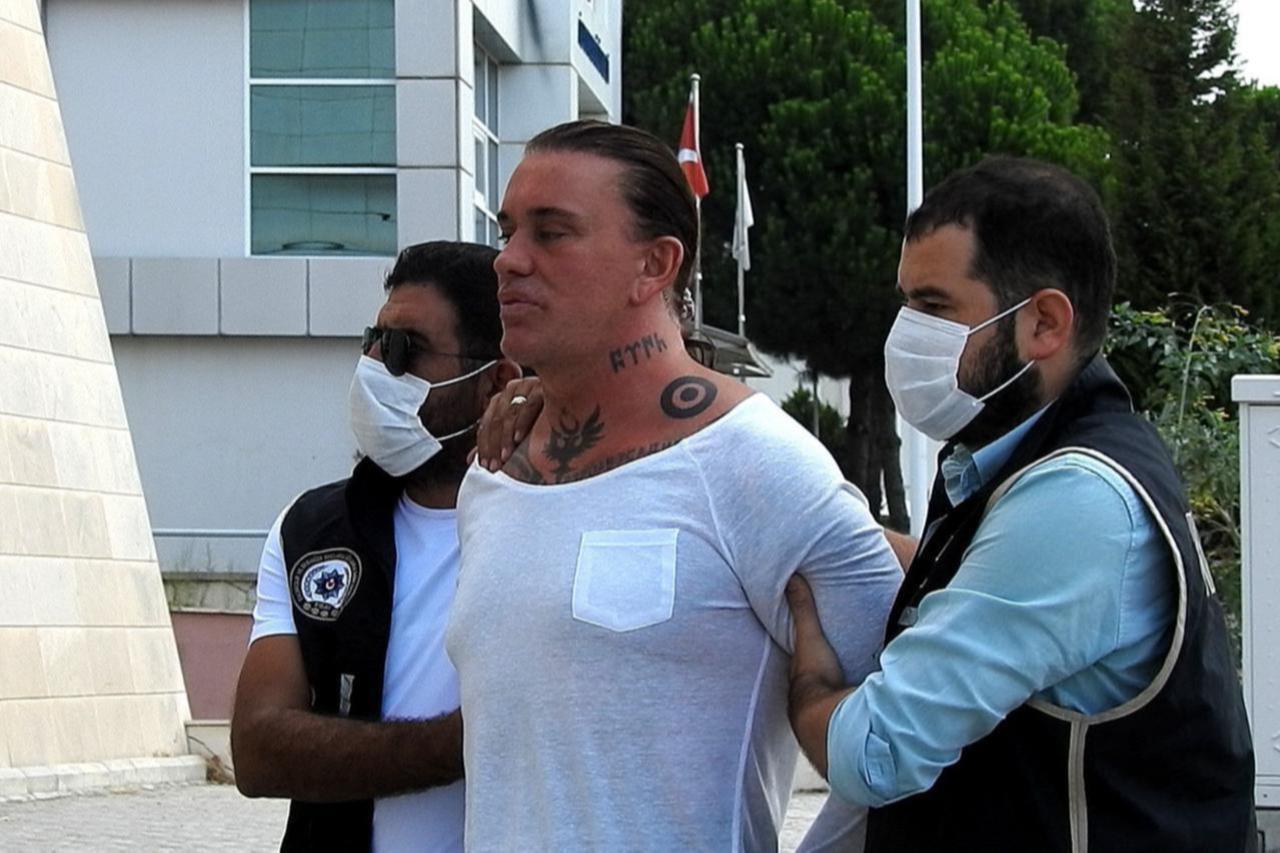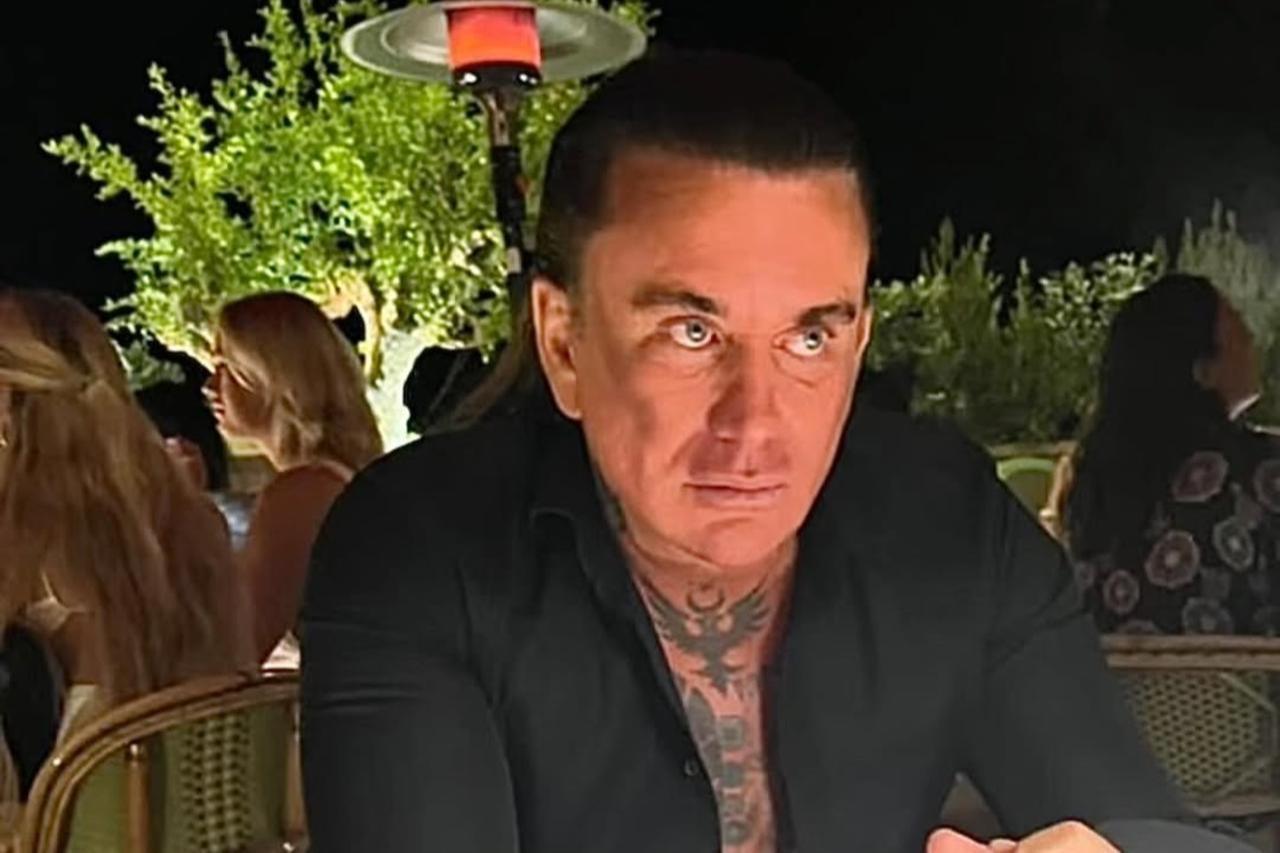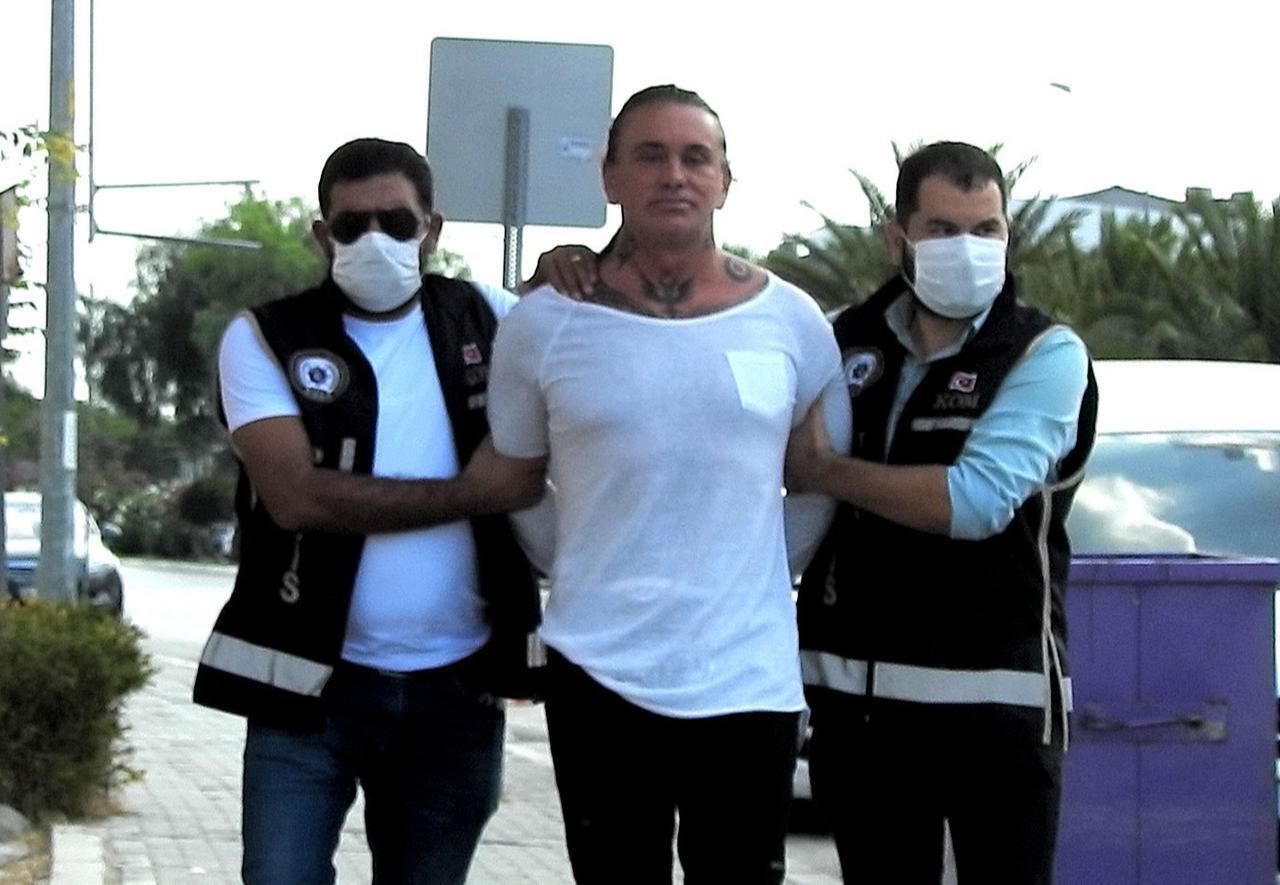
In a dramatic legal reversal, organized crime figure Coskun Necati Arabaci, who is a high-ranking member of the Hells Angels Motorcycle Club, was prevented from walking free when prosecutors successfully challenged his release order, leading a higher court to reinstate his detention just as he was completing prison exit procedures.
The 53-year-old Turkish-German national, known by several aliases including "Father of Cologne" and "Hell's Necati," had been granted conditional release by the Izmir 26th Criminal Court of First Instance. However, the Izmir Chief Public Prosecutor's Office immediately objected to the decision. The Izmir 1st Heavy Penal Court reviewed the appeal and reversed the lower court's ruling, ordering Arabaci to remain behind bars.
Arabaci was detained on the morning of Oct. 5 at Adnan Menderes Airport in Izmir following an extensive intelligence operation conducted by the city's Police Department Organized Crime Unit. The operation, carried out under heightened security measures, targeted the alleged founder and leader of an organized criminal network.
Authorities say Arabaci controlled operations involving money laundering, drug trafficking and weapons smuggling. He was transferred to the Izmir Provincial Police Department's Organized Crime Division for questioning before being formally arrested on Oct. 8 on charges of "establishing an organization for the purpose of committing crimes" and "aggravated robbery."
Arabaci is a high-ranking member of the Hells Angels Motorcycle Club, an international criminal organization recognized by Interpol. Members of the group are known to be involved in various illegal activities including extortion, narcotics trafficking and weapons smuggling across multiple countries.

The initial release decision came during Arabaci's monthly detention review hearing. A duty magistrate court had ruled to continue his detention, but Arabaci's lawyers appealed to a higher court. The Criminal Court of First Instance then ordered his release under strict judicial control measures, including house arrest with an electronic ankle monitor that would prevent him from leaving his residence.
However, the ruling triggered swift action from the prosecutor's office. The Chief Public Prosecutor's Office objected to the release decision, and the case was transferred to the First Heavy Penal Court. The higher court considered Arabaci's risk of flight and potential to pressure witnesses from outside prison, along with the serious nature of the charges.
The court concluded that continued detention was necessary and issued a new arrest warrant. Arabaci, who had been processing his release paperwork at the prison, was sent back to his cell before completing the exit procedures.

Legal professionals and journalists covering the case have raised questions about how such a high-profile organized crime figure could have been granted release, even temporarily. Experts argue that such situations often stem from insufficient direct evidence linking top-level criminal figures to specific crimes, as they typically delegate actual criminal acts to lower-level operatives.
Some legal analysts point to similar cases where high-ranking organized crime figures received brief releases before being re-detained. Critics of the initial decision note that Arabaci's history of fleeing abroad and being wanted through international red notices should have weighed heavily against any release consideration.
Retired prosecutors and legal commentators suggest that individuals with Arabaci's criminal profile and flight risk should only be released under exceptional circumstances. Some have called for judicial oversight bodies to examine the decision-making process in such cases.

Arabaci, born Feb. 14, 1972, built his criminal reputation in Germany, where he was formerly active in Cologne before reportedly relocating to Dubai. The so-called Arabaci-Clan controlled the bouncer scene of nightclubs in Cologne's entertainment district, the Kolner Ringe. His gang of bouncers reportedly befriended young women in order to exploit them as prostitutes.
German authorities arrested him in 2002 on charges including pimping, human trafficking, assault, extortion, weapons violations and racketeering. Arabaci also controlled several brothels in Germany's Rhein-Ruhr region. During his 2004 trial in Germany, Arabaci confessed and received a nine-year prison sentence. He was released in 2007 and deported to Türkiye.
Even while imprisoned in Germany, Arabaci reputedly continued to control the "Colosseum" brothel in Augsburg. After his deportation in 2008, German police still strongly suspected him of controlling the brothel remotely. Several members of Arabaci's clan were sighted in Berlin in 2008, possibly attempting to gain a foothold for the gang in the city's red-light scene.
During his detention in Germany, Arabaci reportedly plotted to kill the prosecutor handling his case and hired an Albanian contract killer from Duisburg. Police had bugged his visiting room, and the prosecutor was given bodyguards and police protection. Based on transcripts of those conversations, Arabaci was prosecuted again to obtain "Sicherungsverwahrung," the German term for indefinite imprisonment of extremely dangerous criminals.
At trial, however, a mistranslation of some of the transcripts was detected, and Arabaci was acquitted of those additional charges. The prosecutor involved in the case fled Germany in 2007 when Arabaci was deported to Türkiye. According to insider reports, Arabaci has established cooperative ties with the street gang "United Tribuns."